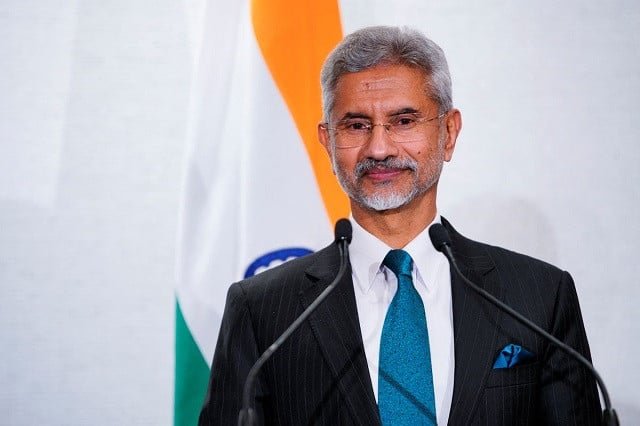United Nations: India chose not to vote in the UN General Assembly on a resolution on Thursday that emphasized the need for a “comprehensive, just, and lasting peace” in Ukraine in accordance with the UN Charter.
The 193-member General Assembly approved the draught resolution titled “Principles of the Charter of the United Nations underlying a comprehensive, just and lasting peace in Ukraine,” which was proposed by Ukraine and its supporters.
The resolution, which got 141 votes in favor and 7 against, “underscores the need to reach, as soon as possible, a comprehensive, just and lasting peace in Ukraine in line with the principles of the Charter of the United Nations.” India was among the 32 countries that abstained.
In accordance with the Charter, the resolution urged member nations and international organizations to step up their support for diplomatic efforts to bring about a comprehensive, just, and long-lasting peace in Ukraine.
Reiterating its demand that Russia immediately, fully, and unconditionally withdraw all of its military forces from the territory of Ukraine within its internationally recognized borders, it reaffirmed its commitment to the sovereignty, independence, unity, and territorial integrity of Ukraine within its internationally recognized borders, including its territorial waters. It also calls for an end to hostilities.
In the year since Russia’s February 24, 2022 invasion of Ukraine, several UN resolutions – in the General Assembly, Security Council and Human Rights Council, have condemned the invasion and underlined the commitment to the sovereignty, independence, unity and territorial integrity of Ukraine.
India has abstained from the UN resolutions on Ukraine and consistently underlined the need to respect the UN Charter, international law and the sovereignty and territorial integrity of states.
In addition, New Delhi has urged that all efforts be made to hasten the end of hostilities and the resumption of diplomatic relations.
In his speech to the high-level UN General Assembly session in September, External Affairs Minister S. Jaishankar declared that India is supporting peace, dialogue, and diplomacy in this conflict.
“As the Ukraine conflict continues to rage, we are often asked whose side are we on. And our answer, each time, is straight and honest. India is on the side of peace and will remain firmly there. We are on the side that respects the UN Charter and its founding principles. We are on the side that calls for dialogue and diplomacy as the only way out,” Jaishankar had said, adding that it is in the collective interest to work constructively, both within the United Nations and outside, in finding an early resolution to this conflict.
India has also consistently underlined that in the conflict, the entire global South has suffered “substantial collateral damage” and developing countries are facing the brunt of the conflict’s consequences on food, fuel and fertilizer supplies.
Jaishankar has said that India is on the side of those that are “struggling to make ends meet, even as they stare at the escalating costs of food, of fuel and fertilizers.” The UNGA resolution called for an immediate cessation of the attacks on the critical infrastructure of Ukraine and any deliberate attacks on civilian objects, including those that are residences, schools and hospitals.
It urged all member states to cooperate in the spirit of solidarity to address the global impacts of the war on food security, energy, finance, the environment and nuclear security and safety and underscored that arrangements for a comprehensive, just and lasting peace in Ukraine should take into account these factors.
UN Secretary-General Antonio Guterres told the emergency special session of the General Assembly that resumed on Wednesday that Russia’s invasion of Ukraine is “an affront to our collective conscience” and said it is “high time” to step back from the brink.
“The one-year mark of Russia’s invasion of Ukraine stands as a grim milestone – for the people of Ukraine and for the international community. That invasion is an affront to our collective conscience. It is a violation of the United Nations Charter and international law,” Guterres said adding that the invasion is having dramatic humanitarian and human rights consequences.
In a strong message, Guterres said the war is fanning regional instability and fuelling global tensions and divisions while diverting attention and resources from other crises and pressing global issues. “Meanwhile, we have heard implicit threats to use nuclear weapons. The so-called tactical use of nuclear weapons is utterly unacceptable. It is high time to step back from the brink,” he said.
Warm greetings to FM @UrmasReinsalu and the Government and people of Estonia on the occasion of their National Day.
Our growing partnership with its focus on digital cooperation holds much promise. pic.twitter.com/hraJGYsa49
— Dr. S. Jaishankar (@DrSJaishankar) February 24, 2023
